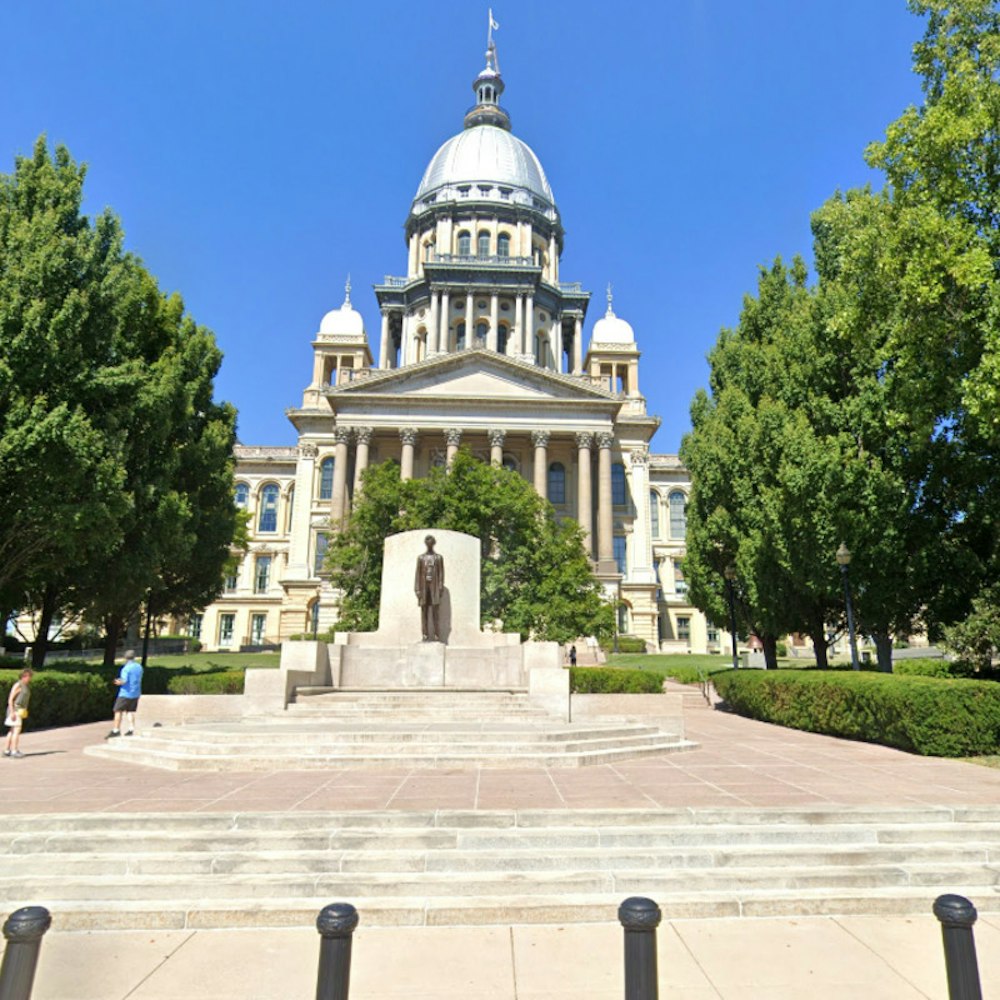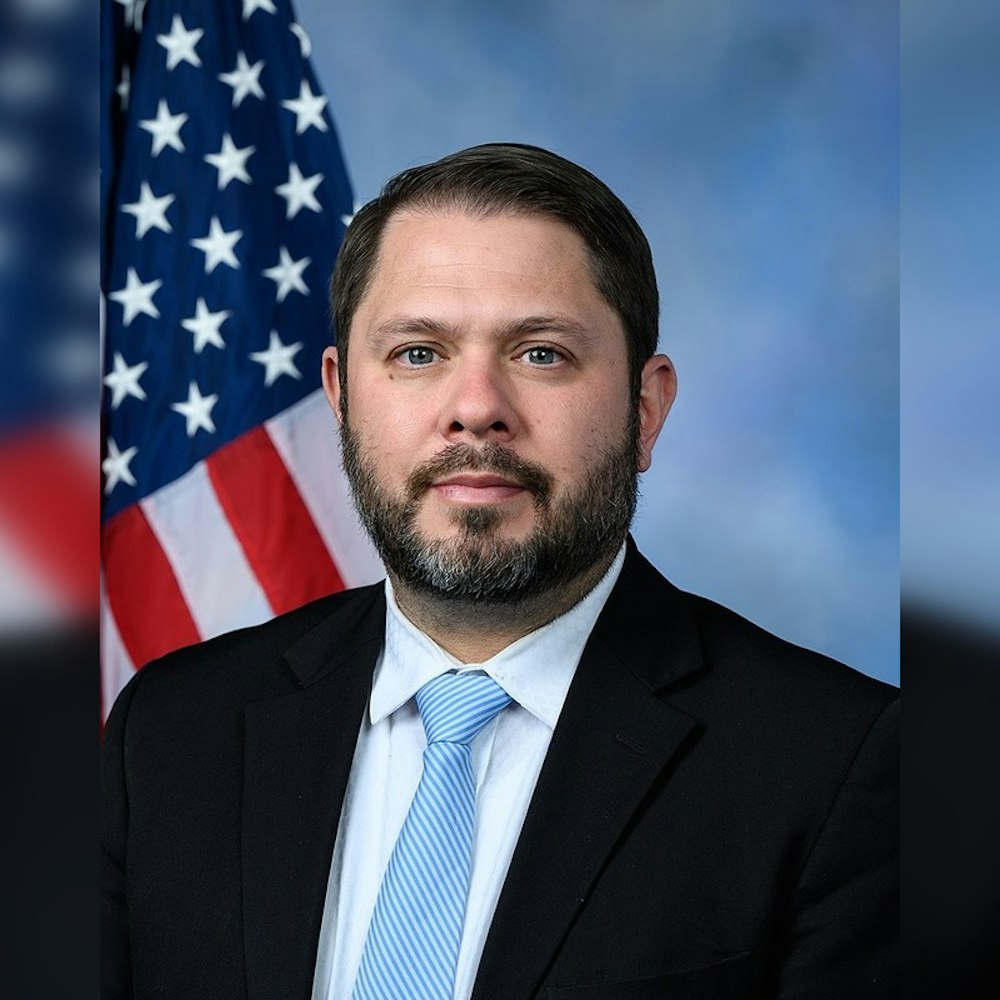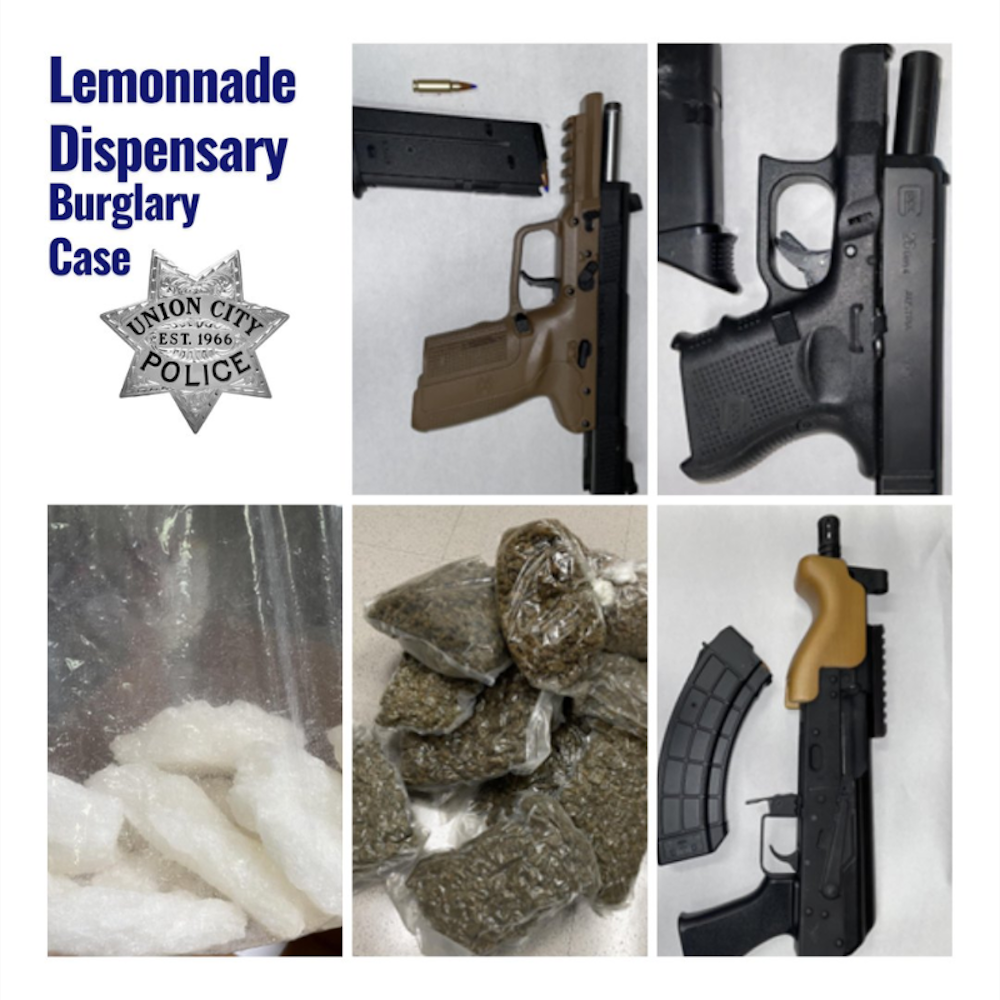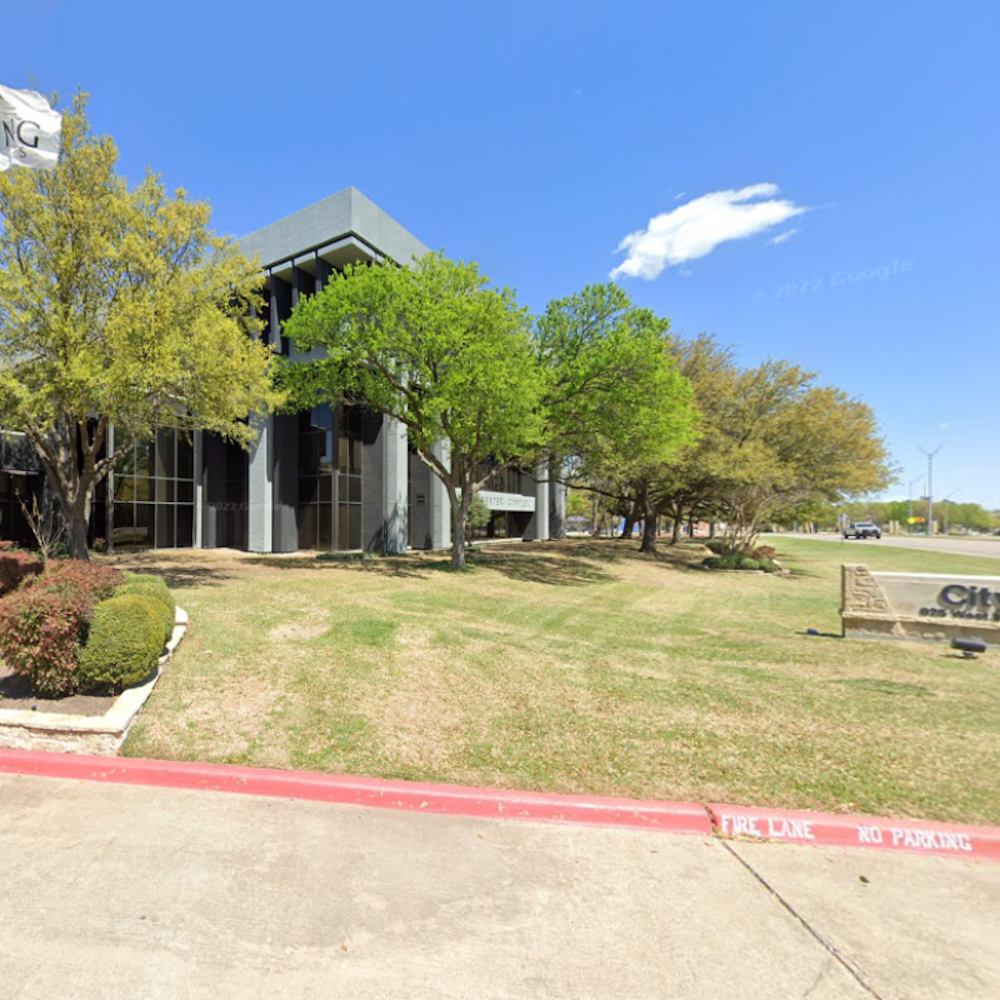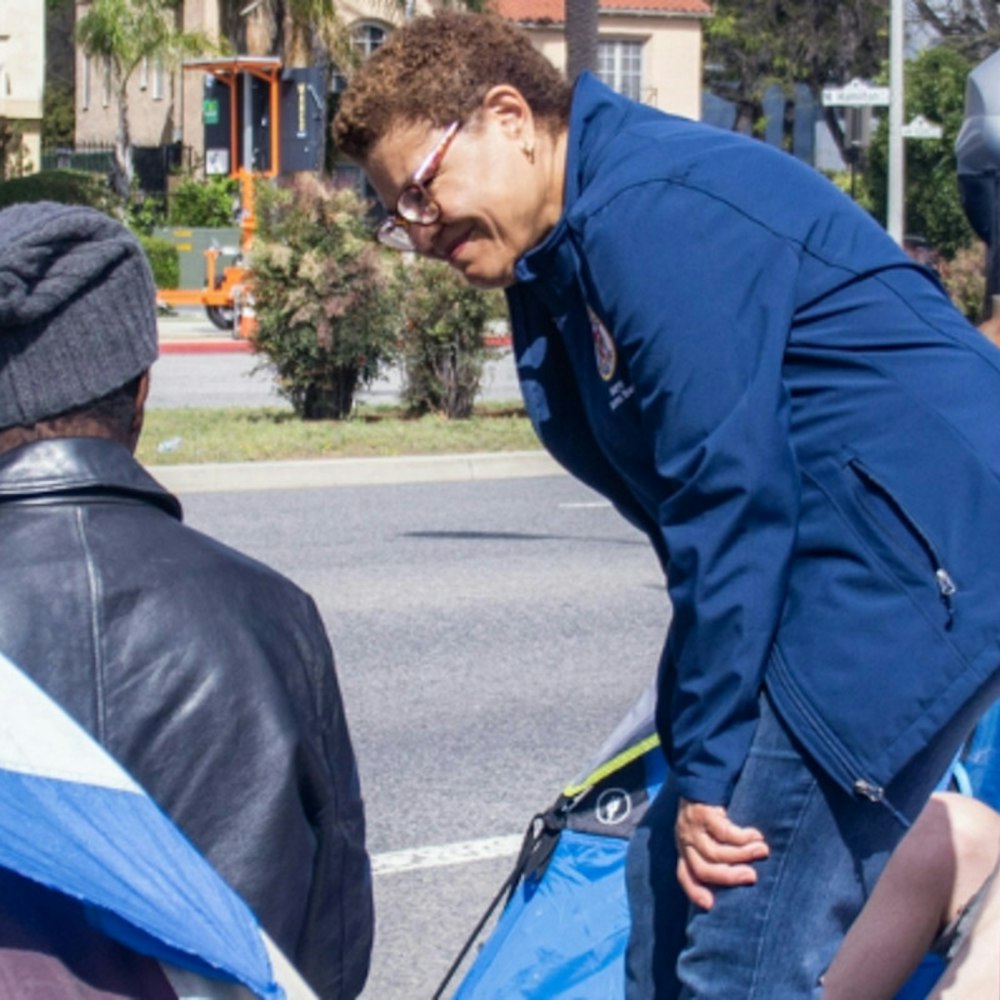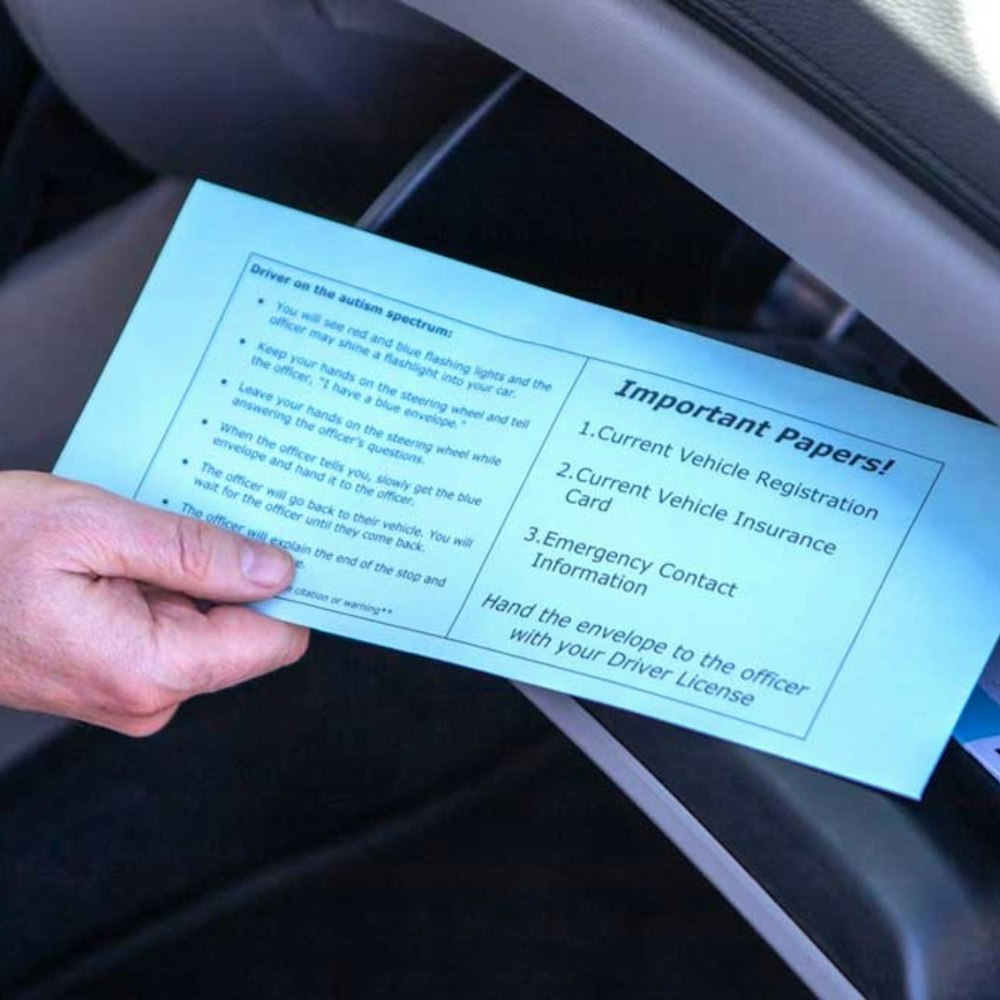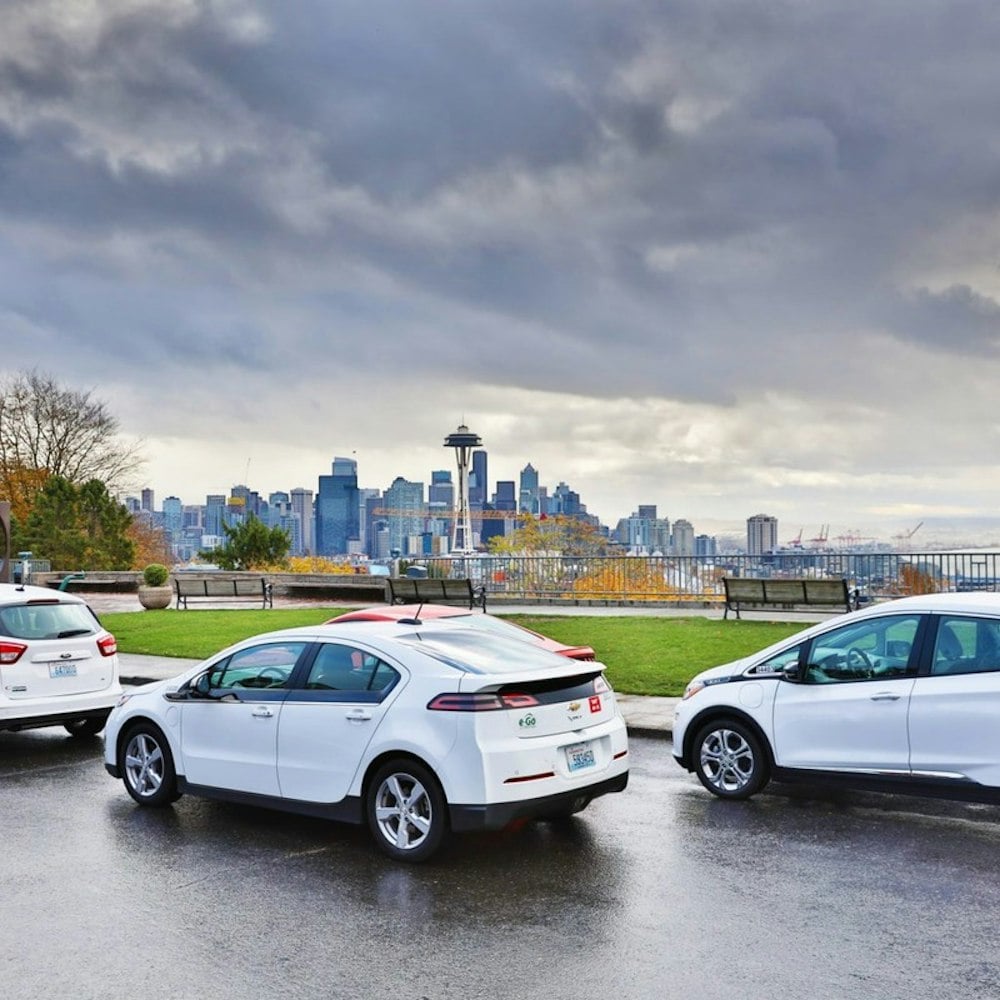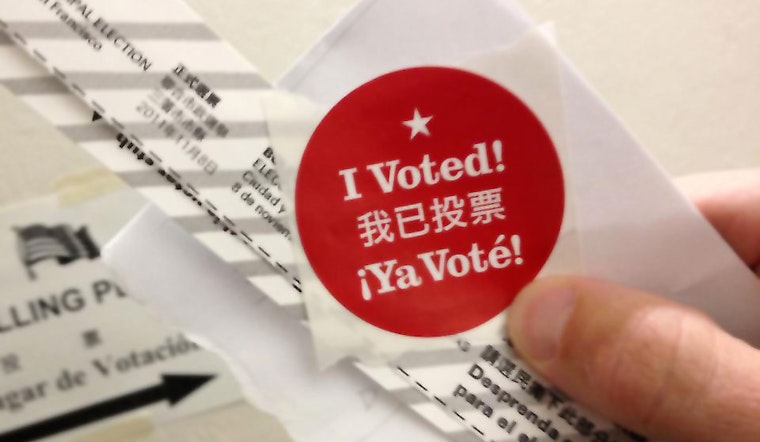
You know all those glossy political flyers accumulating on your doorstep and crowding your mailbox of late? Well, they're not just recycling fodder. They're also evidence that the 2014 election season is approaching its dramatic climax.
Yes, in less than 48 hours, polls around San Francisco will open, and voters will be tasked with determining things like the height of buildings, the cost of soda, the artificialness of turf, and the minimum wage.
To help you make sense of all these state and local measures, plus the slew of candidates vying for your vote, we at Hoodline have prepared the following handy guide, with items in the order you'll see them on the ballot.
Offices
Governor
Incumbent Democrat Jerry Brown versus Republican Neel Kashkari
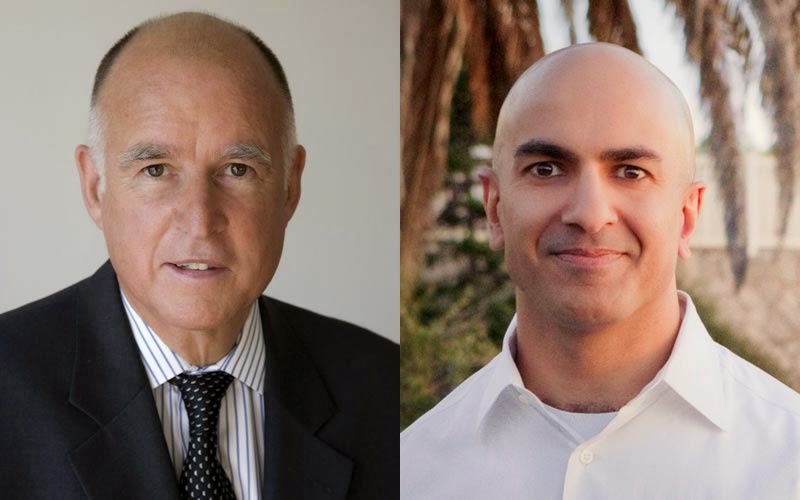
jerrybrown.org & facebook.com/neelkashkari
Brown is seeking his fourth term as the state's governor. He was born in SF, served as Mayor of Oakland and Attorney General of California, and ran for President three times. As Attorney General he refused to defend Prop 8 in court, and sued Countrywide Financial for deceiving homeowners into taking out risky loans. In his current term as Governor, Brown pushed budget cuts and tax hikes to turn a $15.7 billion state budget deficit into a $1.9 billion surplus.
Kashkari is a Laguna Beach-based banker who oversaw the U.S. government's TARP program following the '07-'08 financial meltdown. He describes himself as a free-market Republican and a social libertarian; he believes in man-made climate change and supports marriage equality, but also wants to expand fracking in the state and cut business regulations.
Their official websites:
Lieutenant Governor
Incumbent Democrat Gavin Newsom versus Republican Ron Nehring
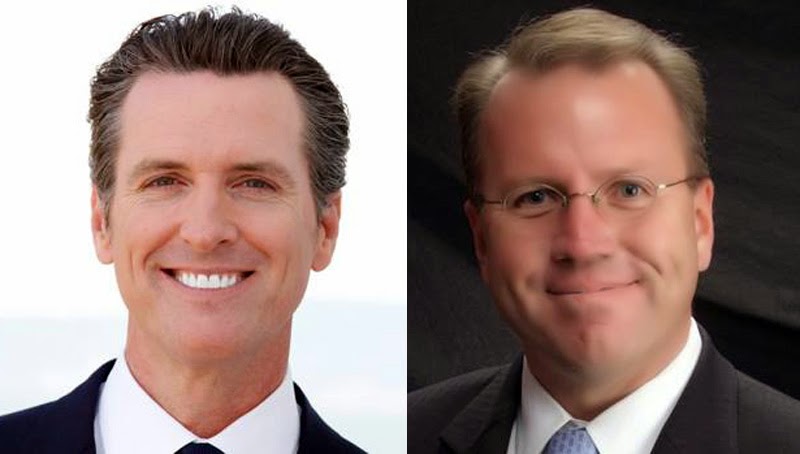
facebook.com/gavinnewsom & facebook.com/ron.nehring
Newsom served as SF Mayor from 2004 to 2011. Previously a businessman spawning a number of ventures under the PlumpJack umbrella, Newsom was appointed to the city's Board of Supervisors in 1997. There he pushed to reform Muni, build more housing, and increase services for the homeless. As Mayor, he famously ordered that marriage licenses be issued to same-sex couples despite a statewide ban. He's running on a platform including goals to legalize marijuana use and pursue greater clean energy production in the state.
Ron Nehring was most recently Chairman of the California Republican Party. He served in local and statewide Republican Party leadership positions from 2001 to 2011. If elected, Nehring wants to cut and flatten taxes, build more prisons, fight the legalization of marijuana, and replace Obamacare, though he doesn't specify with what.
Their official websites:
United States Representative
Incumbent Democrat Nancy Pelosi versus Republican John Dennis

facebook.com/nancypelosi & facebook.com/johndennis2010
Pelosi has represented San Francisco in Congress since 1987. She was elected Minority Leader in 2002 and then Speaker of the House in 2006. As Speaker, Pelosi opposed the resolution authorizing the Iraq War, but also later opposed calls to impeach Bush over the war. She is credited with steering Obamacare through Congress. In her reelection bid, Pelosi's platform includes raising the minimum wage, investing in infrastructure projects, reforming the immigration system, and ending tax breaks for oil companies.
John Dennis has run for this congressional seat three times. A libertarian, Dennis wants to repeal both the Patriot Act and Obamacare. He also wants to end all foreign aid, trade sanctions, and embargoes, and eliminate the income tax. He's the former Chairman of the Republican Liberty Caucus of California, and describes himself as "a father, a husband, an entrepreneur."
Their official websites:
State Assembly
Supervisor David Campos versus Supervisor David Chiu

facebook.com/davidcampossf & sfbos.org
It's a battle of two SF Supervisors named David for the local seat in the State Assembly, to replace term-limited rep Tom Ammiano.
Campos represents District 9, which includes much of the Mission and Bernal Heights. He pushed for the Free Muni for Youth program, sponsored legislation to raise the minimum wage to $15, opposed the so-called Twitter tax break and the recently-passed pro-AirBnb legislation, and worked to get kids out of gangs and guns off the streets. In his candidate statement, Campos cites the growing disparity between the rich and poor in San Francisco, and wants to be a "champion for regular people" in the State Assembly.
Chiu represents District 3, encompassing neighborhoods like North Beach, Chinatown, Russian Hill and the Financial District. He has served as the President of the Board since 2009. Chiu's legislative work has included support for greater bike infrastructure and car-sharing programs, pushing for the development of a cruise terminal at Pier 27, and spearheading the AirBnB legalization law and the Twitter tax break.
Their official websites:
Supervisor, District 8
If you're one of our readers living in Duboce Triangle or the Castro, you likely live in District 8, meaning you get to vote for your Supervisor on Tuesday. The candidates on the ballot are the incumbent Scott Wiener, Tom Wayne Basso, George Davis, John Nulty, and Michael Petrelis. For a review of where they stand on various issues, check out our recent questionnaire results, and official video statements from the candidates themselves.
Other Offices
There are a number of other candidates for statewide and local offices on the ballot, including Secretary of State, Controller, Treasurer, Attorney General, Insurance Commissioner, State Board of Equalization, Board of Education, Community College Board, and various Justices. Rather than profile everyone involved, we encourage you to do your own research on these ones.
Statewide Propositions
Proposition 1: Water Bond
This would authorize $7.1 billion in bonds for water supply infrastructure projects, like protecting watersheds and storing groundwater. It would increase bond costs for the state over the next few decades, but would reduce water-related costs for local governments. Prop 1 is supported by Governor Jerry Brown, both California Senators, and the state's Democratic and Republican parties. Various environmental organizations are split on it, with the NRDC and Audubon California in support, and some hunting and fishing groups opposed.
Proposition 2: State Budget Stabilization
This would amend the state's constitution, requiring an annual transfer of revenue from the state's general fund into a rainy day account. Half of that account would be used to repay state debts, and the rest could only be used for emergencies or budget deficits. The idea here is to ensure that California can pay down its current and future debts more quickly. It's supported by Brown, Kashkari, and both major state parties. Critics contend that administration of the rainy day fund could be politicized, and that the measure could deny public schools control over their own savings.
Proposition 45: Health Insurance Changes
Right now, health insurers can change their rates or other fees without approval from the state's Insurance Commissioner. This proposition would require the Commissioner's approval for such changes, and would also require public notices, hearings, and judicial review. The proposition is supported by Senators Boxer and Feinstein, consumer groups, and the California Nurses Association. It's opposed by medical groups and health care companies, unsurprisingly, who claim it will increase costs for consumers.
Proposition 46: Drug and Alcohol Testing of Doctors
This proposition was inspired by a case in which two children were killed by a driver who was under the influence of alcohol and abused prescription drugs. It would require doctors to be drug tested, would require doctors to check a statewide prescription database before prescribing some controlled substances, and would adjust the cap in medical negligence lawsuits upwards to account for inflation. It's supported by Senator Boxer, a few consumer watchdog groups, and Erin Brockovich. It's opposed by a near-infinite number of doctors' groups, the ACLU, and various unions, who claim it's a boon to trial lawyers and will violate doctors' personal privacy.
Proposition 47: Criminal Sentences
This would reduce the sentences for certain drug and property offenses from felony levels to misdemeanors. It wouldn't apply to people with prior convictions for serious or violent crimes, or for registered sex offenders. It's supported by strange bedfellows like Gavin Newsom and Rand Paul, the ACLU and Newt Gingrich, George Gascón and Jay-Z. It's opposed by Diane Feinstein and dozens of District Attorneys from around the state, who fear it will "ultimately lead to the release of thousands of dangerous criminals," in Feinstein's words.
Proposition 48: Indian Gaming Compacts
Up for approval are gaming compacts between the state and two Indian tribes, one located in the Sierra foothills, and the other up north near Humboldt Bay. The compacts would allow the former tribe to build a casino on non-reservation land, and revenue from that casino would benefit both tribes. A "yes" vote would approve the compacts, generating annual payments to the state for the next 20 years. Jerry Brown and the state's Democratic Party support the proposition, claiming it will create jobs and help the tribes be self-sustaining. Opposition groups, including a rival casino, contend that allowing a casino on non-reservation land could open the floodgates to more casinos throughout the state.
City And County Propositions
Proposition A: $500 Million Transportation Bond
By issuing bonds, the city would raise $500 million to fund a slew of local traffic and transit projects, including building transit-only lanes and separated bikeways, installing new boarding islands and accessible platforms, upgrading Muni maintenance facilities, and other infrastructure repairs. The funding would be subject to independent citizen oversight and regular audits. This proposition has widespread support, and requires a two-thirds supermajority of votes to pass.
Proposition B: Tie Muni Funding to Population Growth
This would amend the city's Charter to increase funding of the SFMTA as the City's population grows. Three quarters of those annual increases would have to be used to improve Muni service and capacity, while one quarter would be used to improve street safety.
Proposition C: Extending Funding For Children
This proposition would renew a couple of the city's children-related funds which are set to expire soon, the Children's Fund and the Public Education Enrichment Fund, for another 25+ years. Those two funds largely go to support public schools. Prop C would also create a new city council that would be tasked with improving the condition of children and families in San Francisco. It's supported by Mayor Lee and all 11 Supervisors, and faces no organized opposition.
Proposition D: Health Care Benefits For Some City Employees
There used to be a state-created agency called the San Francisco Redevelopment Agency. It was dissolved in 2012 by order of the state's Supreme Court, and replaced with something known as the Successor Agency. This proposition would amend the city Charter to offer health care benefits to roughly 50 employees who worked for those agencies before January 2009 and are now becoming city employees. This would basically give them the same rights as other employees who have worked for the city over the same period.
Proposition E: Soda Tax
Introduced by Supervisor Scott Wiener, this proposition would impose a tax on distributors of sugar-sweetened beverages of two cents per ounce, with revenue going to fund health, nutrition, physical activity and health programs in schools and parks. It's estimated the tax will bring in revenue of $31 million per year. It's supported by various Supervisors and public health advocates, and opposed by the Libertarian Party of San Francisco and the American Beverage Association. This one requires a two-thirds supermajority to pass.
Proposition F: Pier 70 Height Limit Increase
Currently San Francisco waterfront developments are limited to a height of 40 feet. This proposition would raise that limit to 90 feet for one specific development at Pier 70 in the Dogpatch. That development would encompass 2,000 housing units, 1.8 million square feet of commercial space, and nine acres of new parks. Supporters say that this development site is in an industrial area without the desirable views of the Bay that typically justify such waterfront height restrictions.
Proposition G: Tax on Multi-Unit Properties
This would add a so-called "anti-speculation" tax of a whopping 14-24 percent on sales of certain multi-unit properties that are sold within five years of being purchased. The goal is to strongly disincentivize property owners from "flipping" their buildings, a practice that pushes up housing prices.
Proposition H: Ban Artificial Turf And Night Lighting
When the SF Rec and Parks Department revealed plans to install artificial turf on the Beach Chalet soccer fields at the western end of Golden Gate Park, opponents cried foul. The turf is unnatural, potentially toxic, and a sign of city corruption, they claimed. The city contends that artificial turf is easier to maintain and can be used when wet, and with the addition of lighting, could ensure the fields would see more than twice the usage that they currently do. The opponents are pushing Proposition H, which would require natural grass be used at all athletic fields in the western half of Golden Gate Park, and would ban nighttime sports field lighting in these areas.
Proposition I: Maybe Allow Artificial Turf And Night Lighting
The city's response to Prop H is Prop I, which would allow artificial turf and nighttime lighting on playgrounds and fields citywide if their presence would double those facilities' anticipated usage, and if an environmental impact report were certified. If both Proposition H and Proposition I pass, whichever has the most "yes" votes will dictate what happens to the Beach Chalet fields.
Proposition J: Increase The Minimum Wage
This would increase the city's minimum wage from its current level of $10.74 per hour to $15 by July 2018, with increases thereafter based on inflation. It has the support of Mayor Lee and various labor unions, while a restaurant group opposes the hike, claiming it will result in higher prices for consumers.
Proposition K: Affordable Housing Policy
This is a non-binding policy statement, encouraging the City to construct 30,000 homes by 2020 with 33 percent being affordable for low-income families and 50 percent being affordable for "middle-class" households. This proposition is something of a compromise after Supervisor Jane Kim and Mayor Ed Lee presented competing housing proposals for the ballot.
Proposition L: Make Cars A Bigger Priority
The so-called "restore transportation balance" non-binding measure would steer city policy to be more favorable to cars and their owners. It would encourage the city to ban parking meter fees on Sundays and holidays, ban raising parking garage or meter fees for five years, and ban new meters in neighborhoods without consent from local residents and businesses. This measure is opposed by virtually every local elected official, newspaper, transit group, and Democratic club. It's supported by the local Republican Party, and was funded by Napster co-founder Sean Parker.
So, San Francisco residents, those are the people and propositions you'll have to vote on come Tuesday. The only thing left to do, assuming you've registered, is to figure out where you're supposed to vote. And you can do that right here.
Polls are open Tuesday from 7am to 8pm, so plan accordingly.
